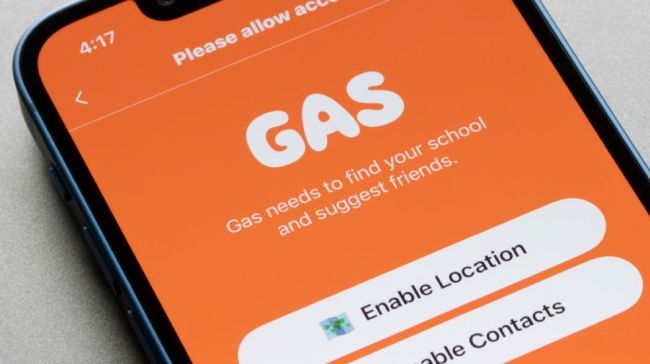Gas is now one of the most downloaded apps among high school students. The concept of “gassing” someone up—Gen Z-speak for making them feel good about themselves—gives it its name. However, is the app truly a beneficial force? Is there a catch?
Which app is Gas?
Gas is the most popular social media app among high school students. It was the most popular free social media platform in Apple’s app store earlier this school year. Nikita Bier, one of its founders, launched a similar app in 2017 called “tbh.”
On Gas, users begin building their contacts by selecting their school and grade from a pre-populated list based on their location. After that, polls are shown to teens, and they are asked to choose which of the four contacts on the list has the best photos, who always passes the vibe check, who is the most empathetic, who always flirts, or who they would want to hold hands with in a horror movie.

What dangers does the Gas app pose?
Some of the features that have made other apps like Snapchat and Instagram risky for teens are not present in Gas. Kids cannot be contacted by strangers. Instead of writing their own possibly hurtful messages, users can only say nice things to one another by participating in polls with an ostensibly positive spin.
Nonetheless, bullying is a possibility—albeit less obvious. One possibility is that students will never appear at the top of any poll. The app tries to fix this by showing users’ names more frequently if they haven’t received any compliments recently.) Second, it’s possible to make fun of some of the supposedly positive polls. For instance, a mocking “most beautiful” designation could be given to a student who, on the basis of their appearance, is not the best.
There was a rumor that Gas was being used for human trafficking earlier this year. Even though some police departments, including the one in Piedmont, Oklahoma, have issued warnings regarding the app, that is not true.
Is the Gas app private?
The majority of the time, the answer is “yes.” The vast majority of users, who stick with the free version, cannot see who is voting for them in polls. However, for a weekly subscription fee of $6.99, users can upgrade to a premium version that provides additional features, such as clues about who is voting for them in polls based on the first letter of a name.
Is the app for Gas free?
According to Bier, more than 95% of users select the free version. However, a premium version costs $6.99 per week, which can quickly add up for a high school student.
Experts wonder if Gas is trying to capitalize on teenagers’ anxieties by convincing them that the premium version will help them better understand how their peers view them.
Spencer Greenhalgh, an assistant professor in the school of information sciences at the University of Kentucky, stated, “It feels a little exploitative to me.” They want to know what their friends think of them because they are aware that teenagers are insecure.
